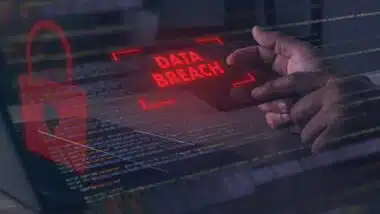 A group of plaintiffs filed a new lawsuit in December 2019 under the Anti-Terrorism Act against the National Bank of Pakistan, alleging the bank was used to funnel money to the Pakistani Taliban, ultimately funding an Afghanistan IED attack that injured American service members.
A group of plaintiffs filed a new lawsuit in December 2019 under the Anti-Terrorism Act against the National Bank of Pakistan, alleging the bank was used to funnel money to the Pakistani Taliban, ultimately funding an Afghanistan IED attack that injured American service members.
According to the lawsuit, a suicide bomber attacked a CIA base in Afghanistan, funded by the Pakistani Taliban. The base, known as Camp Chapman, was targeted on December 30, 2009 in the suicide bombing, which killed nine people, including seven Americans. An additional six people suffered from serious injuries, making this attack the largest against the CIA since 1983, the lawsuit notes.
The lawsuit was filed by a group of surviving family members of some of the U.S. service members who were killed by al-Qaeda in the Camp Chapman Attack.
The lawsuit alleges that funding was provided to the Pakistani Taliban by a National Bank of Pakistan customer, Hafiz Khan, who was also a U.S. citizen. Khan, along with several others, was indicted by a federal grand jury in 2011 for providing financial support to terrorists, was convicted on all counts, and sentenced to twenty-five years in prison.
The National Bank of Pakistan, the lawsuit claims, played a critical role in Khan’s funding of the Pakistani Taliban. Indeed, the lawsuit claims, NBP “acted knowingly” by facilitating these “suspicious transfers” to the Pakistani Taliban.
The bank’s policies should have compelled them to investigate these transfers, the lawsuit alleges, yet it permitted them without investigation. For instance, the amounts that Khan transferred per month did not match up with his stated occupation; he regularly made transfers of $10,000, though his job brought in about $3,000 monthly, the lawsuit notes. Moreover, Khan’s son was identified as a known Pakistani Taliban member.
“Those policies required the bank to detect, prevent, and block transactions that even could have a link to terrorism financing efforts,” the lawsuit reads.
The lawsuit posits that given the timing of the fund transfers, discovery will likely bring in evidence that this funding was directly used for the Camp Chapman attack, which plaintiffs allege would make the National Bank of Pakistan liable under the Anti-Terrorism Act for the deaths and injuries suffered in the Camp Chapman Attack.
Filing a Lawsuit Under the Anti-Terrorism Act
Other world banks have also been called out for their involvement in funding terrorist activities. If you or someone you love was injured in an Iraq or Afghanistan IED attack while serving in the U.S. military, you may be able to file a lawsuit under the Anti-Terrorism Act and pursue compensation. Of course, filing a lawsuit cannot take way the pain and suffering caused by such injuries, nor can they bring a loved one back to life, but they can at least help to alleviate the financial burden, as well as hold banks accountable for their actions that contributed to these attacks.
More than $1 billion has so far been paid out to victims and their families from the U.S. Victims of State-Sponsored Terrorism Fund, and that number is only expected to climb. Current estimates show close to 6,000 victims of state-sponsored terrorism that may be eligible for compensation under the Anti-Terrorism Act.
The IED Attacks Lawsuit is Case No. 1:19-cv-11876-AKH, in the U.S. District Court for the Southern District of New York.
If you or a loved one was injured or killed by an IED or EFP while fighting in the Iraq or Afghanistan wars, legal recourse is available. Get help now by filling out the form on this page for a FREE case evaluation.
The attorneys who work with Top Class Actions will contact you if you qualify to let you know if an individual lawsuit or anti-terrorist class action lawsuit is best for you. (In general, anti-terrorist lawsuits are filed individually by each plaintiff and are not class actions.) After you fill out the form, the attorneys who work with Top Class Actions will contact you if you qualify to let you know if an individual lawsuit or class action lawsuit is best for you. Hurry — statutes of limitations may apply.
ATTORNEY ADVERTISING
Top Class Actions is a Proud Member of the American Bar Association
LEGAL INFORMATION IS NOT LEGAL ADVICE
Top Class Actions Legal Statement
©2008 – 2026 Top Class Actions® LLC
Various Trademarks held by their respective owners
This website is not intended for viewing or usage by European Union citizens.
Get Help – It’s Free
Join a Free Iranian IED, EFP Lawsuit Investigation
If you qualify, an attorney will contact you to discuss the details of your potential case at no charge to you.
PLEASE NOTE: If you want to participate in this investigation, it is imperative that you reply to the law firm if they call or email you. Failing to do so may result in you not getting signed up as a client or getting you dropped as a client.
Email any problems with this form to [email protected].
Oops! We could not locate your form.













Looking at the anti-terrorism case as my husband was killed in Iraq. 01/05/07.